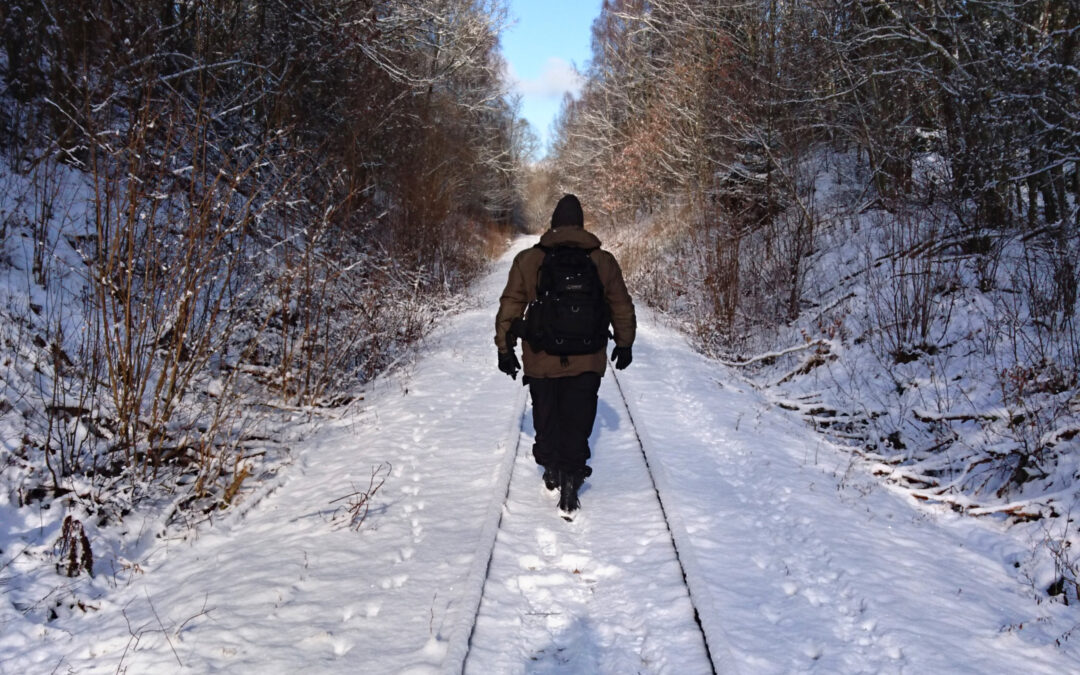Camping and hiking for most people means a group activity, something you do with your friends and family to provide company and comfort in an environment that is unfamiliar, and at night for many even a bit scary. Going solo however, has its own merits and I will here talk a bit about some of those merits.
Conquering your fears
Doing things that we are uncomfortable with can help us grow, especially when it comes to what is largely irrational fears of things that pose no real danger to us, and which can just as well be regarded as good and positive. These fears come in many forms and just listing a few we find these to be quite common.
The dark
Many people feel a fear of the dark, because of how it obscures potential threats, by itself thereby carrying the capacity for danger with little means to change it. In most cases this is a very irrational fear as most camping tends to be done in places where there is little threat to humans, and even in places where wildlife can threaten us, it is still rare and can be managed in various ways. We normally run a far greater risk of harm in urban environments, with traffic and crime, but images from horror movies easily play tricks on our minds in the dark.
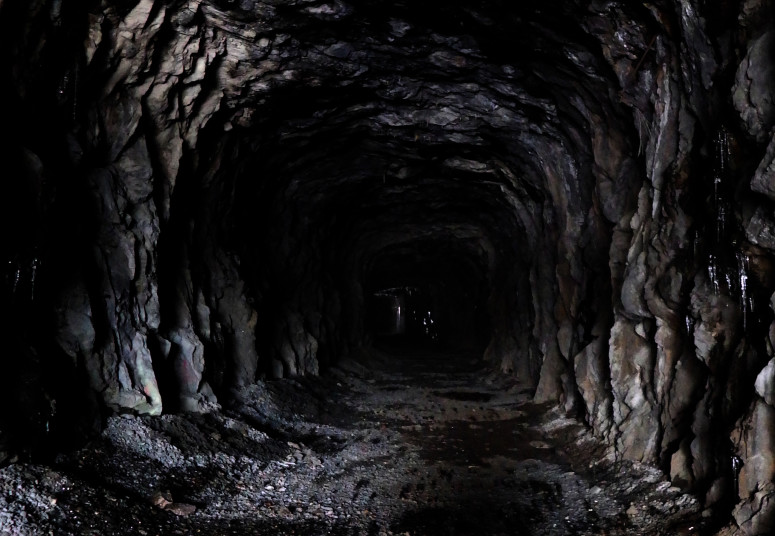
Still, despite this fear being quite irrational, it is also very hard to shake off and the only real way that works is through repeated exposure, passing through it. Camping alone in unfamiliar environment will teach you this quite well. Learning to manage one’s fear of the dark in nature also makes such fears in your “normal” environment seem even less rational and as a consequence you will feel more comfortable in everyday life.
Isolation
Isolation can do funny things to you as the only company you have is yourself. To quote Jean-Paul Sartre “If you are lonely when you are alone, then you are in bad company“. Basically lack of confidence and all other fears can be brought to a focus when there is nothing else to distract. However, this also has its advantages as social pressure is also at the same time removed completely, meaning that when you are alone you don’t have to pretend or act in a way that takes the feelings and expectations of others into consideration.
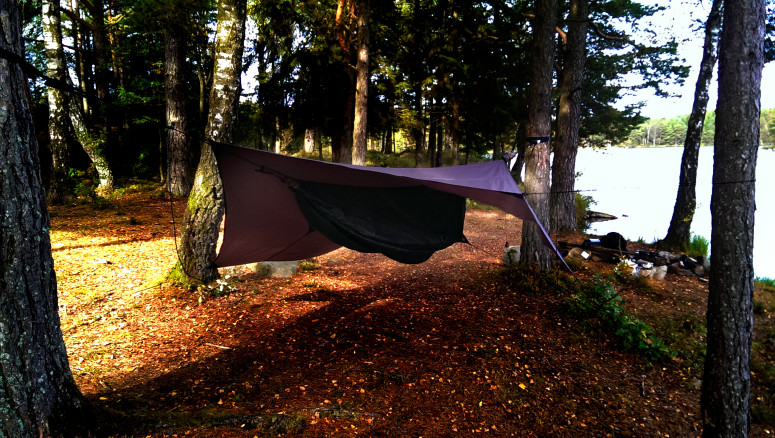
Isolation usually takes a bit of getting used to and changing your state of mind will take some time. A constant flux of thoughts on work, relations etc is common at first, until you learn to focus on the smaller things, your tasks and just enjoying simple things like sun on your skin, the taste of a few wild blueberries or the smell of food cooked over open fire. Things that are balm for your soul.
Eventually, however, you will learn to feel comfortable all by yourself, even over extended periods of time, not having spoken to anyone else for many days. And through this your perception of your surroundings will also intensify, giving you a heightened awareness.
Getting lost
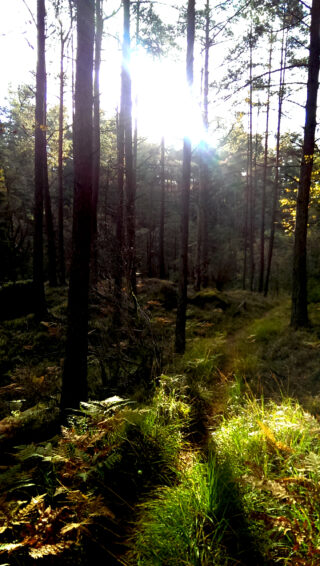 Muriel Strode wrote “I will not follow where the path may lead, but I will go where there is no path, and I will leave a trail.” Now this is of course meant as a philosophical statement, but interpreting it more literally it also carries an important message. For most of our lives we are quite aware of exactly where we are, knowing quite well how we got there and where to go to return. Very few actually move around in unfamiliar environments and “being lost” is very rare, and for that reason quite scary to most.
Muriel Strode wrote “I will not follow where the path may lead, but I will go where there is no path, and I will leave a trail.” Now this is of course meant as a philosophical statement, but interpreting it more literally it also carries an important message. For most of our lives we are quite aware of exactly where we are, knowing quite well how we got there and where to go to return. Very few actually move around in unfamiliar environments and “being lost” is very rare, and for that reason quite scary to most.
I would suggest, however, that being lost now and then is important, as it teaches us that we really do have the capacity to find our way back if we just use our minds. Being “lost” rarely actually means being truly lost. Instead the area we know we are in just have a somewhat unfocused centre around us that we need to identify. Through the use of simple tools like an analogue watch or signs in nature, like the position of the sun, we can learn to find our way back towards some form of civilization. This builds a layer of security, making you feel more comfortable and capable in a way that used to be quite natural, and still is for people who live more in tune with nature.
Vulnerability

Common European Viper
This is one of the greatest issues many have. Being alone in an unfamiliar environment makes us feel vulnerable, consciously or just as a feeling of discomfort or unease.
In everyday life we are surrounded by the comfort and protection of family, friends and society but strip away all that and we find a strong fear, a fear that is constantly played upon in the numerous disaster and zombie movies that depict how society breaks down completely, leaving us very exposed to harmful forces.
 With this safety net removed, as when we are outdoors, getting lost, getting sick, lacking food or water or suffering bad weather and cold temperatures can actually threaten your health and even life, and the only protection against that is yourself, your knowledge and your preparations.
With this safety net removed, as when we are outdoors, getting lost, getting sick, lacking food or water or suffering bad weather and cold temperatures can actually threaten your health and even life, and the only protection against that is yourself, your knowledge and your preparations.
Comfort and safety provided by others is not perfectly reliable, especially not for unexpected emergencies, and while important and necessary for a society, independency is far more reliable and should always be your primary choice. Still, help from others who have specialized in certain skills is often of vital importance for any individual in a longer and larger perspective. A group is always stronger than the individual, despite the individual not being able to rely on it. Medical help is one such example, where you yourself should be able to manage emergencies, but longterm procedures and care is better handled by someone specialized in it.
Nature
Most people in the industrialized world have largely lost their connection to nature, now knowing no more than a few trees and the names of mostly larger wildlife and a handful of birds, with no proper knowledge of what is edible or what can be used for medical purposes. Many don’t even know how to make a fire under anything but dry conditions and even less so how to make different types of fires for different purposes.
Simply put, for many nature is much like travelling to a completely different world, to another culture that they don’t recognize the codes for. This of course contributes to making us feel uncomfortable and vulnerable. What is foreign equates to a potential threat. It is part of our natural strategies for survival, in this case actually protecting us from the most natural thing itself; nature, and through this making us more vulnerable to it.
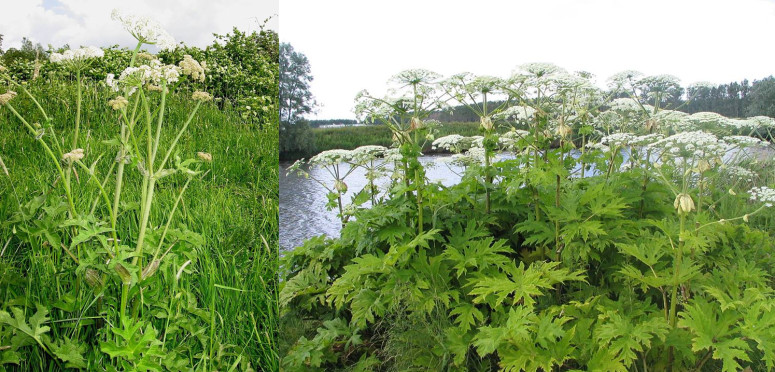
Poisonous and corrosive Giant Hogweed
Luckily, much of this is fairly quick and easy to learn and you only need a fairly basic set of skills to be quite comfortable when outdoors. Gathering food however, is today quite difficult due to the extreme hunting and exploitation that was so dominating all the way up until about the 1950s. There are exceptions to this where good hunting and fishing still exist, but even fishing is often difficult in many locations, and surviving on plants and berries is even more difficult as they provide rather little nutrients.
So do not nurture any fantasies about surviving easily and comfortable in the wild on what nature provides. What you can do however, is stay comfortable over a period of time with food you have brought with you, and with fairly few items brought along to make life easier, like a folding saw, a knife, fire steel, a pot, a sleeping bag and simple shelter like a tarp. Much more than that isn’t needed even for extended excursions.
Time
Moving away from our fears, in modern urban life we tend to define and divide things into temporal measurements, ordering and planning multiple simultanous tasks by fine markers in time, sometimes even losing focus on the purpose and necessary sequencing of the tasks in this, prioritizing a time schedule over rational and healthy choices. Our perception of time is defined by numbers rather than by natural order, causing stress and a constant pressure to do things at a specific point in time rather than just doing the task until it is completed. Likewise we often eat out of habit, not out of need. And we sleep wrong, not following the natural rythms of daylight, getting up and going to bed too late.
Personally, I believe this is quite unhealthy in the long run, both physically and mentally. Going on a solo hike strips away all this, and very much changes your perception of time as you focus on a single simple task like preparing shelter, or firewood with nothing else to concern yourself with. Time becomes fluid, fuzzy and circular rather than linear. In a sense it even becomes irrelevant, apart from the separation of light and dark, with breaks for eating when you are hungry and need food, instead of at predefined times for lunch or dinner.
Distance to things
Not only our perception of time changes, but as we distance ourselves physically from our normal environment, our perception of it may also change. It is from a distance we get an overview and see patterns. Our views on external things like work and relationships can be allowed to become more crisp and defined as we take a step back. Likewise our internal discourse on choices in life, on goals and our own behaviour in various contexts become clearer as we have fewer distractions and stay in a place where there is no pretense or concerns for the feelings or expectations from others.
Such time for contemplation and reflection is difficult to find in everyday life, but hugely important for our well-being. And one of the easiest ways of creating such an opportunity is going on a solo hike.
Self-reliance
What all this builds up to is a sense of comfort and confidence in your own being, of true self-reliance in what is at the core of our existance under the simplest of conditions. This is the foundation on which everything else builds up.
Our inner “world” is dependant on our capacity and comfort with the outer world and society as our construct it is actually an addition to “true” reality, i.e. nature as it evolved by itself without human control or influence. So in a sense this is also about reconnecting to a different, more basic reality, outside of what we have built, created and often imposed on what has been built naturally over the millennias. Of course urban life is no less “true” and it carries its own particular challenges, but underneath of it lies a core we are all aware of and need to relate to, ideally without fear.
Appreciation for what you have
This aspect is not to be underestimated. Family, friends, a soft bed, a hot shower, clean water and plenty of food are things a lot of people simply do not have, while we who do regard them as normal and standard instead of the luxuries and blessings they truly are. By removing ourselves from what we take for granted we learn to appreciate them more. Self-imposed ascetisism and cuttings things down to basics helps with this as it teaches you to value the truly important things in life, instead of superficial things like status, money and luxury items.
Beauty
While urban environments certainly can carry their own beauty, most people also feel that nature can be almost sacred in its beauty. There is a certain tranquility and harmony that can only be perceived in nature. Things just fit in a way that most cities don’t.
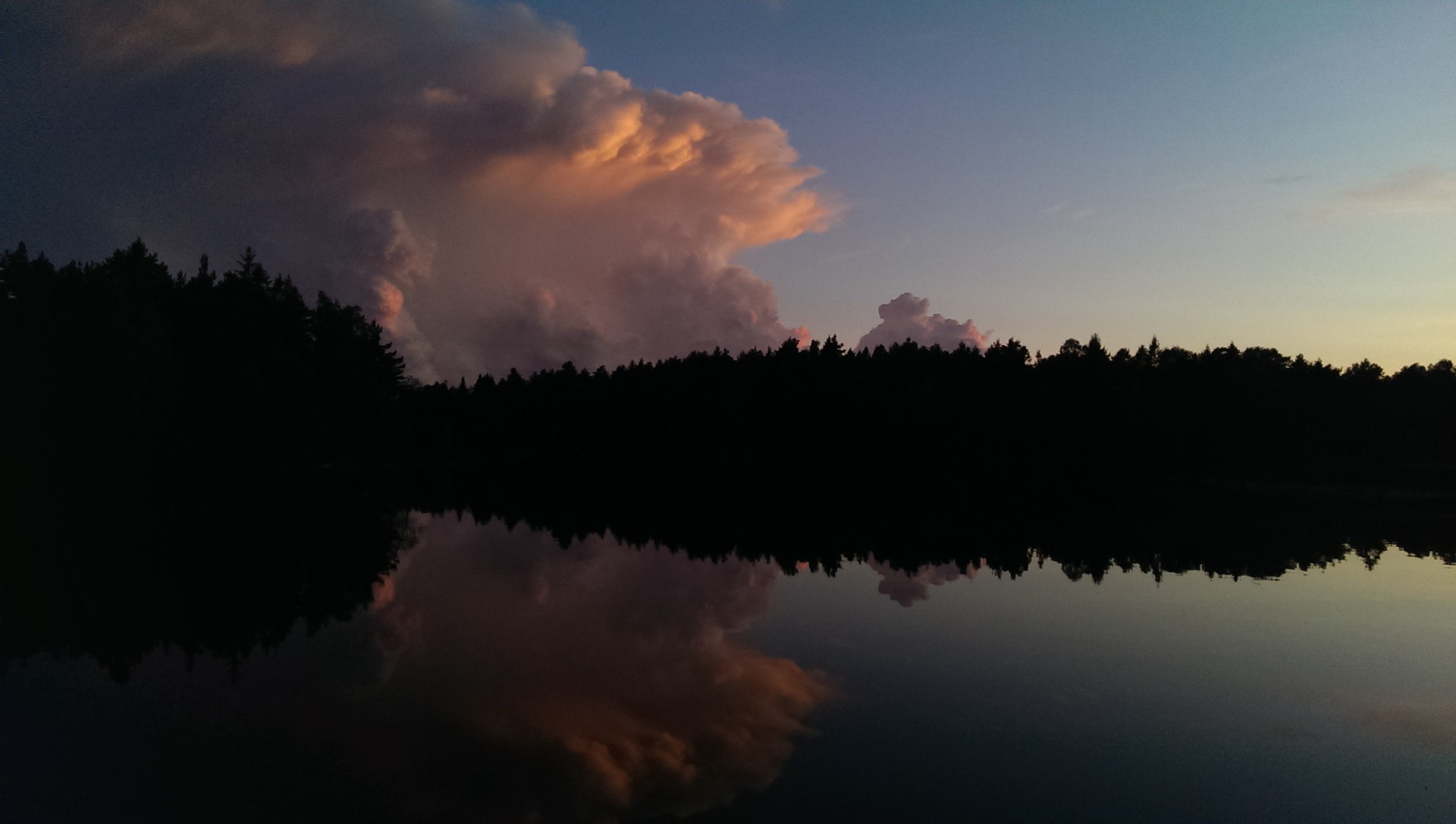
This beauty can of course also be experienced and shared with others, but just like with religion the close personal relationship is deeply different to the shared experience and the two can’t be substituted with each other. The silence and solitude defines this experience at its core. This experience is what draws me the most to the woods.
***
These are some of my thoughts and experiences on the topic of why one should go on solo hikes every now and then. I hope you have enjoyed reading this and I strongly encourage you to try this fantastic experience some time. It is greatly rewarding, despite, or rather due to the challenges it can offer to us.

